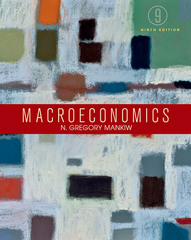Answered step by step
Verified Expert Solution
Question
1 Approved Answer
Parties and Endogenous Voting [20 points] Consider a model where two parties compete for votes by offering different policy platforms. Assume that all parties commit
Parties and Endogenous Voting [20 points] Consider a model where two parties compete for votes by offering different policy platforms. Assume that all parties commit to implementing the policy they campaigned on if elected. The two political parties, i {A, B}, must choose a policy platform i {0, 1 2 , 1}. Voters have single-peaked preferences over the set of available policies with equal shares of ideal points at each available policy: one third of the voters have ideal point at 0, one third at 1 2 , and one third have ideal point at 1. The voters' utility functions are of the form uv (xj , ) = (xj )2, where xj is voter j's ideal point and is the policy that is implemented by the party that wins a majority of votes. Assume that if voters are indifferent between parties, then their votes are split in equal proportion among A and B. Throughout the question, assume that parties also have policy preferences with a utility function of the form ui(xi, ) = (xi )2, where xi is party i's ideal point. Further assume that party A's most preferred policy is 0 and party
Step by Step Solution
There are 3 Steps involved in it
Step: 1

Get Instant Access to Expert-Tailored Solutions
See step-by-step solutions with expert insights and AI powered tools for academic success
Step: 2

Step: 3

Ace Your Homework with AI
Get the answers you need in no time with our AI-driven, step-by-step assistance
Get Started


